Latest Sheet Music
Adam Schlesinger
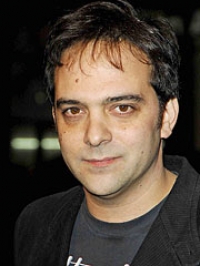
Adam Schlesinger is an American songwriter, composer and record producer. He is the bassist for the bands Fountains of Wayne, Ivy and Tinted Windows. He is an owner of Scratchie Records and Stratosphere Sound, a recording studio in New York City. Schlesinger grew up in Manhattan and Montclair, New Jersey.
Schlesinger was nominated for an Academy Award and a Golden Globe Award for writing the title track of the Tom Hanks-directed film That Thing You Do! as well as two other songs for the film. Fountains of Wayne was nominated for two Grammy Awards in 2003 for Best New Artist and Best Pop Performance by a Duo or Group with Vocal.
Schlesinger and David Javerbaum were nominated for a 2008 Tony Award for Best Original Score for his music for the musical Cry-Baby.
Schlesinger and Javerbaum also received a 2009 Emmy nomination for Outstanding Music And Lyrlcs, for their song "Much Worse Things", performed by Elvis Costello and Stephen Colbert on the television special "A Colbert Christmas: The Greatest Gift Of All!"
Schlesinger was nominated for an Academy Award and a Golden Globe Award for writing the title track of the Tom Hanks-directed film That Thing You Do! as well as two other songs for the film. Fountains of Wayne was nominated for two Grammy Awards in 2003 for Best New Artist and Best Pop Performance by a Duo or Group with Vocal.
Schlesinger and David Javerbaum were nominated for a 2008 Tony Award for Best Original Score for his music for the musical Cry-Baby.
Schlesinger and Javerbaum also received a 2009 Emmy nomination for Outstanding Music And Lyrlcs, for their song "Much Worse Things", performed by Elvis Costello and Stephen Colbert on the television special "A Colbert Christmas: The Greatest Gift Of All!"
Paul Creston
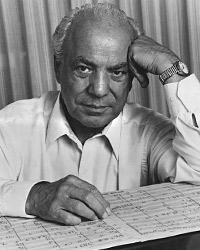
Paul Creston (born Giuseppe Guttoveggio; October 10, 1906 – August 24, 1985) was an Italian American composer of classical music.Born in New York City to Sicilian immigrants, Creston was self-taught as a composer. His work tends to be fairly conservative in style, with a strong rhythmic element. His pieces include six symphonies; a number of concertos, including two for violin, one for marimba and orchestra (premiered by Ruth Stuber), one for one piano, one for two pianos, one for accordion and one for alto saxophone (the latter dedicated to Cecil Leeson); a fantasia for trombone and orchestra (composed for and premiered by Robert Marsteller). Also for alto saxophone he wrote a Rapsodie for Jean-Marie Londeix; a suite (1935) and a sonata (Op. 19, 1939), both dedicated to Cecil Leeson (the sonata was arranged by Marco Ciccone for saxophone and orchestra in 2008); and also a suite for organ, Op. 70.
Alexander Glazunov
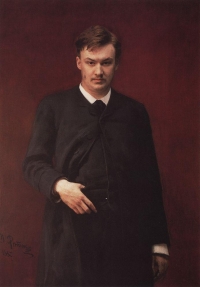
Alexander Konstantinovich Glazunov (Russian: Алекса́ндр Константи́нович Глазуно́в, 10 August 1865 – 21 March 1936) was a Russian composer, music teacher, and conductor of the late Russian Romantic period. He served as director of the Saint Petersburg Conservatory between 1905 and 1928 and was instrumental in the reorganization of the institute into the Petrograd Conservatory, then the Leningrad Conservatory, following the Bolshevik Revolution. He continued heading the Conservatory until 1930, though he had left the Soviet Union in 1928 and did not return. The best-known student under his tenure during the early Soviet years was Dmitri Shostakovich.
Clint Mansell
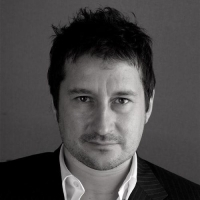
Clint Mansell (born Clinton Darryl Mansell, 7 January 1963, Coventry, England) is a musician, composer, and former lead singer and guitarist of Pop Will Eat Itself.
Mansell was the lead singer and guitarist of the British band Pop Will Eat Itself. After the disbanding of PWEI in 1996, Mansell broke into the world of film scoring when his friend, director Darren Aronofsky, hired him to score his debut film, π.
Mansell was the lead singer and guitarist of the British band Pop Will Eat Itself. After the disbanding of PWEI in 1996, Mansell broke into the world of film scoring when his friend, director Darren Aronofsky, hired him to score his debut film, π.
David Dzubay
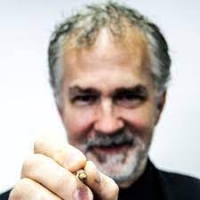
David Dzubay Musical composer Born: 1964 (age 58 years), Minneapolis, Minnesota, United States Awards: Guggenheim Fellowship for Creative Arts, US & Canada Songs Fanfares On Re For Ray Ray E. Cramer Retirement Concert · 2012
Capriccio, For Violin And Piano Dancesing In A Green Bay · 2010 Life Songs, Book II. Singing In The Sun: I Taste A Liquor Never Brewed Dancesing In A Green Bay · 2010.
Capriccio, For Violin And Piano Dancesing In A Green Bay · 2010 Life Songs, Book II. Singing In The Sun: I Taste A Liquor Never Brewed Dancesing In A Green Bay · 2010.
Yoon So-hee
Yoon was born in Stuttgart, Germany, on May 7, 1993, and lived there for six years before returning to Seoul. In 2011, she enrolled as a Chemical and Biomolecular Engineering major at KAIST, one of South Korea's prestigious science and research universities; she is currently on a leave of absence. Later, in 2021, she returned to study.
Fall Out Boy

Fall Out Boy is an American rock band from Wilmette, Illinois, (a suburb of Chicago) that formed in 2001. The band consists of Patrick Stump (lead vocals, rhythm guitar, primary composer), Pete Wentz (bass guitar, backing vocals, primary lyricist), Joe Trohman (lead guitar), and Andy Hurley (drums, percussion).
Fall Out Boy has won several awards for its album From Under the Cork Tree. Released in 2005, the album has achieved double platinum status after selling more than 2.5 million albums in the United States. In support of the album, Fall Out Boy headlined tours in 2005 and the year before 2007 in the United States, Canada, Japan, and Europe.
In February 2007, the band released Infinity on High to major chart success, reaching #1 on the Billboard 200 and selling 260,000 copies in its first week. The first single, "This Ain't a Scene, It's an Arms Race", reached #1 on the Pop 100 and #2 on the Billboard Hot 100. To promote the album, the band performed at the Live Earth concerts July 7, headlined the Honda Civic Tour through mid-2007, and the band performed at the MTV Video Music Awards on September 9. The band has toured numerous times, most recently on the Young Wild Things Tour with the Plain White T's, Gym Class Heroes, and Cute Is What We Aim For.
Fall Out Boy has won several awards for its album From Under the Cork Tree. Released in 2005, the album has achieved double platinum status after selling more than 2.5 million albums in the United States. In support of the album, Fall Out Boy headlined tours in 2005 and the year before 2007 in the United States, Canada, Japan, and Europe.
In February 2007, the band released Infinity on High to major chart success, reaching #1 on the Billboard 200 and selling 260,000 copies in its first week. The first single, "This Ain't a Scene, It's an Arms Race", reached #1 on the Pop 100 and #2 on the Billboard Hot 100. To promote the album, the band performed at the Live Earth concerts July 7, headlined the Honda Civic Tour through mid-2007, and the band performed at the MTV Video Music Awards on September 9. The band has toured numerous times, most recently on the Young Wild Things Tour with the Plain White T's, Gym Class Heroes, and Cute Is What We Aim For.
Gym Class Heroes

Gym Class Heroes are an American band from Geneva, New York. The group formed when Travis "Schleprok" McCoy met drummer Matt McGinley and decided to make a band. After the addition of guitarist Disashi Lumumba-Kasongo and bassist Eric Roberts, they were signed to Decaydance Records, on which they released the gold-selling album As Cruel As School Children. Since that release, the band has garnered much success, with the single "Cupid's Chokehold" reaching #4 on the Billboard Hot 100, and "Clothes Off!!" peaking at #5 on the UK Singles Chart.
Rather than using the conventional tools of hip hop production, Gym Class Heroes use live instrumentation, similar to artists such as Florescent Theifs, Stetsasonic, The Roots, N.E.R.D., Flobots, and Crown City Rockers. They have collaborated with Fall Out Boy's Patrick Stump on numerous occasions, notably for providing backing vocals on the song "Cupid's Chokehold." The band plans to release their fourth LP, The Quilt, later this year.
Rather than using the conventional tools of hip hop production, Gym Class Heroes use live instrumentation, similar to artists such as Florescent Theifs, Stetsasonic, The Roots, N.E.R.D., Flobots, and Crown City Rockers. They have collaborated with Fall Out Boy's Patrick Stump on numerous occasions, notably for providing backing vocals on the song "Cupid's Chokehold." The band plans to release their fourth LP, The Quilt, later this year.
Kabalevsky
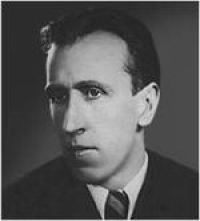
Dmitry Borisovich Kabalevsky (Russian: Дми́трий Бори́сович Кабале́вский; December 30, 1904 – February 18, 1987) was a Russian Soviet composer.
Kabalevsky is regarded as one of the great modern composers of children's music. He helped to set up the Union of Soviet Composers in Moscow and remained one of its leading figures. He was also a prolific composer of piano music and chamber music, many of his piano works have been performed by the likes of Vladimir Horowitz, and are regarded as highly innovative, suffusing influences from jazz structure like that of the latter Nikolai Kapustin and symbolic minimalism along the lines of Alemdar Karamanov's Concerto No. 3 for piano and orchestra.
Kabalevsky is regarded as one of the great modern composers of children's music. He helped to set up the Union of Soviet Composers in Moscow and remained one of its leading figures. He was also a prolific composer of piano music and chamber music, many of his piano works have been performed by the likes of Vladimir Horowitz, and are regarded as highly innovative, suffusing influences from jazz structure like that of the latter Nikolai Kapustin and symbolic minimalism along the lines of Alemdar Karamanov's Concerto No. 3 for piano and orchestra.
Coldplay

Coldplay are a rock band formed in London, England in 1997. The group comprises vocalist/pianist/guitarist Chris Martin, lead guitarist Jonny Buckland, bassist Guy Berryman, and drummer/multi-instrumentalist Will Champion. Coldplay have sold 34.6 million albums, and are also known for their hit singles, such as "Yellow", "The Scientist", "Speed of Sound", "Fix You", "Viva la Vida" and the Grammy Award-winning "Clocks".
Coldplay achieved worldwide fame with the release of their single "Yellow", followed by their debut album, Parachutes (2000), which was nominated for the Mercury Prize. Its follow-up, A Rush of Blood to the Head (2002) won multiple awards such as NME's Album of the Year and was later included on Rolling Stone magazine's 500 Greatest Albums of All Time list, ranking at #473. Their next release, X&Y (2005), received a slightly less enthusiastic yet still generally positive reception. The band's fourth studio album, Viva la Vida or Death and All His Friends (2008), was produced by Brian Eno and released again to largely favourable reviews. All of Coldplay's albums have enjoyed great commercial success.
Coldplay's early material was compared to acts such as Jeff Buckley, U2, and Travis. Coldplay have been an active supporter of various social and political causes, such as Oxfam's Make Trade Fair campaign and Amnesty International. The group have also performed at various charity projects such as Band Aid 20, Live 8, and the Teenage Cancer Trust.
Coldplay achieved worldwide fame with the release of their single "Yellow", followed by their debut album, Parachutes (2000), which was nominated for the Mercury Prize. Its follow-up, A Rush of Blood to the Head (2002) won multiple awards such as NME's Album of the Year and was later included on Rolling Stone magazine's 500 Greatest Albums of All Time list, ranking at #473. Their next release, X&Y (2005), received a slightly less enthusiastic yet still generally positive reception. The band's fourth studio album, Viva la Vida or Death and All His Friends (2008), was produced by Brian Eno and released again to largely favourable reviews. All of Coldplay's albums have enjoyed great commercial success.
Coldplay's early material was compared to acts such as Jeff Buckley, U2, and Travis. Coldplay have been an active supporter of various social and political causes, such as Oxfam's Make Trade Fair campaign and Amnesty International. The group have also performed at various charity projects such as Band Aid 20, Live 8, and the Teenage Cancer Trust.
Traditional

Des'ree
Desirée Annette Weekes (born 30 November 1968), known by her stage name Des'ree (/ˈdɛz(ə)reɪ/), is an English pop recording artist who rose to popularity during the 1990s. She is best known for her hits "Feel So High", "You Gotta Be", "Life", and "Kissing You" (from the soundtrack of the film Romeo + Juliet). At the 1999 Brit Awards she received the Brit Award for Best British female solo artist.
Leslie Bricusse
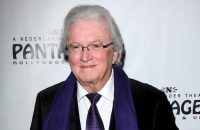
Leslie Bricusse is an English composer, lyricist, and playwright, most prominently working in musicals and also cinema theme music
Fernando Rochael

Fernando Rochael Musical artist Songs Venha Espírito Santo Medley Natalino Natal Real · 2013 Natal Real Natal Real · 2013
Music theory

Music theory is the study of the practices and possibilities of music. The Oxford Companion to Music describes three interrelated uses of the term "music theory"
Jonathan Larson
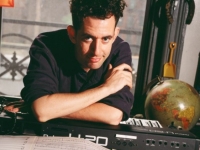
Jonathan David Larson (February 4, 1960 – January 25, 1996) was an American composer and playwright noted for exploring the social issues of multiculturalism, addiction, and homophobia in his work. Typical examples of his use of these themes are found in his works Rent and Tick, Tick... Boom! He received three posthumous Tony Awards and a posthumous Pulitzer Prize for Drama for the rock musical Rent.
Jacques Brel
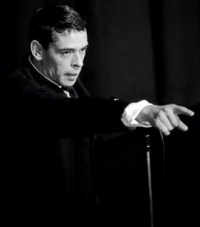
Jacques Romain Georges Brel (April 8, 1929 – October 9, 1978) was a Belgian French-speaking singer-songwriter. The quality and style of his lyrics are highly regarded by many leading critics of popular music.
Brel's songs are not especially well known in the English-speaking world except in translation and through the interpretations of other singers, most famously Scott Walker and Judy Collins. Others who have sung his work in English include Marc Almond, Dave Van Ronk, Alex Harvey, David Bowie, Dusty Springfield, The Dresden Dolls, Frank Sinatra, Terry Jacks, Nina Simone, Rod McKuen, The Kingston Trio, Gavin Friday, Jack Lukeman, Dax Riggs and Beirut. In French-speaking countries, Brel is also remembered as an actor and director.
Brel's songs are not especially well known in the English-speaking world except in translation and through the interpretations of other singers, most famously Scott Walker and Judy Collins. Others who have sung his work in English include Marc Almond, Dave Van Ronk, Alex Harvey, David Bowie, Dusty Springfield, The Dresden Dolls, Frank Sinatra, Terry Jacks, Nina Simone, Rod McKuen, The Kingston Trio, Gavin Friday, Jack Lukeman, Dax Riggs and Beirut. In French-speaking countries, Brel is also remembered as an actor and director.
Roxette

Roxette is a Swedish pop duo, consisting of Marie Fredriksson and Per Gessle.
Although well known as a duo in their native Sweden since the mid 1980s (where the group has had 17 Top 10 hits), the duo achieved worldwide success in the late 1980s. Roxette had four US No. 1 singles, two No. 2 singles. The group has been certified by the Recording Industry Association of America (RIAA) with two platinum albums - 1988's Look Sharp! (released in the U.S. in 1989) and 1991's Joyride, as well as two gold singles - "The Look" and "It Must Have Been Love".
Roxette's success was even bigger in Europe and South America, where their number of Top 10 hits was higher and continued after their decline in the US in 1992. Each of their 7 studio albums as well as their several "Best of" CDs received gold, platinum or multi-platinum status in Europe and Latin-America.
Although well known as a duo in their native Sweden since the mid 1980s (where the group has had 17 Top 10 hits), the duo achieved worldwide success in the late 1980s. Roxette had four US No. 1 singles, two No. 2 singles. The group has been certified by the Recording Industry Association of America (RIAA) with two platinum albums - 1988's Look Sharp! (released in the U.S. in 1989) and 1991's Joyride, as well as two gold singles - "The Look" and "It Must Have Been Love".
Roxette's success was even bigger in Europe and South America, where their number of Top 10 hits was higher and continued after their decline in the US in 1992. Each of their 7 studio albums as well as their several "Best of" CDs received gold, platinum or multi-platinum status in Europe and Latin-America.
Michael Jackson

Michael Joseph Jackson (August 29, 1958 – June 25, 2009) was an American singer, dancer and entertainer. Referred to as the King of Pop, he is the most commercially successful entertainer of all time, and one of the most influential. His contributions to music, dance and fashion, along with a much publicized personal life, made him a global figure in popular culture for over four decades.
Alongside his brothers, he made his debut as lead singer and youngest member of The Jackson 5 in 1964. He began his solo career in 1971. His 1982 album Thriller remains the best-selling album ever, with Off the Wall (1979), Bad (1987), Dangerous (1991) and HIStory (1995) also among the world's best-selling albums. He is widely credited with having transformed the music video from a promotional tool into an art form with videos for his songs such as "Billie Jean", "Beat It" and "Thriller" making him the first African American artist to amass a strong crossover following on MTV. With stage performances and music videos, Jackson popularized a number of physically complicated dance techniques, such as the robot and the moonwalk. His distinctive musical sound, vocal style, and choreography, is credited with stretching across and breaking down cultural, racial, economic, generational, and global barriers that has inspired countless pop, rock, R&B and hip hop artists.
One of the few artists to have been inducted into the Rock and Roll Hall of Fame twice, his other achievements feature multiple Guinness World Records—including the "Most Successful Entertainer of All Time"—15 Grammy Awards (including the "Living Legend Award" and the "Lifetime Achievement Award"), 26 American Music Awards (24 only as a solo artist, including one for "Artist of the Century")—more than any artist—, 17 number one singles in the US (including the four as a member of the Jackson 5), and estimated sales of up to 750 million records worldwide making him the world's best selling artist in history.
Jackson's personal relationships and life generated controversy for years. His changing appearance was noticed from the late 1970s onwards, with changes to his nose and to the color of his skin drawing media publicity. He was accused of child sexual abuse in 1993 though no charges were brought, and in 2005 he was tried and acquitted when the jury ruled him not guilty on all charges. He married twice, first in 1994 and again in 1996, and brought up three children, one born to a surrogate mother. While preparing for the This Is It concert tour in 2009, Jackson died at the age of 50 after suffering from cardiac arrest. He reportedly had been administered drugs such as propofol and lorazepam, and his death was ruled a homicide by the Los Angeles County coroner. His death triggered an outpouring of grief from around the world with his globally live broadcast memorial service attracting an audience of up to one billion people; as well as a huge surge in his album sales, resulting in him becoming the best selling artist of 2009 with sales in excess of 8.2 million in the United States where he became the first artist ever to have 4 of the top 20 best-selling albums in a single year, and 29 million albums globally, where he had an unprecedented 8 of the top 25 best-selling albums worldwide.
Alongside his brothers, he made his debut as lead singer and youngest member of The Jackson 5 in 1964. He began his solo career in 1971. His 1982 album Thriller remains the best-selling album ever, with Off the Wall (1979), Bad (1987), Dangerous (1991) and HIStory (1995) also among the world's best-selling albums. He is widely credited with having transformed the music video from a promotional tool into an art form with videos for his songs such as "Billie Jean", "Beat It" and "Thriller" making him the first African American artist to amass a strong crossover following on MTV. With stage performances and music videos, Jackson popularized a number of physically complicated dance techniques, such as the robot and the moonwalk. His distinctive musical sound, vocal style, and choreography, is credited with stretching across and breaking down cultural, racial, economic, generational, and global barriers that has inspired countless pop, rock, R&B and hip hop artists.
One of the few artists to have been inducted into the Rock and Roll Hall of Fame twice, his other achievements feature multiple Guinness World Records—including the "Most Successful Entertainer of All Time"—15 Grammy Awards (including the "Living Legend Award" and the "Lifetime Achievement Award"), 26 American Music Awards (24 only as a solo artist, including one for "Artist of the Century")—more than any artist—, 17 number one singles in the US (including the four as a member of the Jackson 5), and estimated sales of up to 750 million records worldwide making him the world's best selling artist in history.
Jackson's personal relationships and life generated controversy for years. His changing appearance was noticed from the late 1970s onwards, with changes to his nose and to the color of his skin drawing media publicity. He was accused of child sexual abuse in 1993 though no charges were brought, and in 2005 he was tried and acquitted when the jury ruled him not guilty on all charges. He married twice, first in 1994 and again in 1996, and brought up three children, one born to a surrogate mother. While preparing for the This Is It concert tour in 2009, Jackson died at the age of 50 after suffering from cardiac arrest. He reportedly had been administered drugs such as propofol and lorazepam, and his death was ruled a homicide by the Los Angeles County coroner. His death triggered an outpouring of grief from around the world with his globally live broadcast memorial service attracting an audience of up to one billion people; as well as a huge surge in his album sales, resulting in him becoming the best selling artist of 2009 with sales in excess of 8.2 million in the United States where he became the first artist ever to have 4 of the top 20 best-selling albums in a single year, and 29 million albums globally, where he had an unprecedented 8 of the top 25 best-selling albums worldwide.
Barbra Streisand
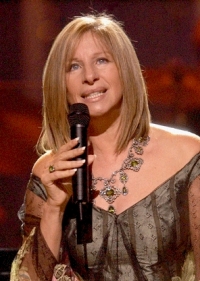
Barbra Streisand (born April 24, 1942) is an American singer, film and theatre actress. She has also achieved some note as a composer, political activist, film producer and director. She has won Academy Awards for Best Actress and Best Original Song as well as multiple Emmy Awards, Grammy Awards, and Golden Globe Awards.
She is one of the most commercially and critically successful female entertainers in modern entertainment history and one of the best selling solo recording artists in the US, with RIAA-certified shipments of over 71 million albums. She is the highest ranking female artist on the Recording Industry Association of America's (RIAA) Top Selling Artists list.
Streisand is a member of the short list of entertainers with the distinction of having won an Emmy, a Grammy, an Oscar and a Tony award.
She is one of the most commercially and critically successful female entertainers in modern entertainment history and one of the best selling solo recording artists in the US, with RIAA-certified shipments of over 71 million albums. She is the highest ranking female artist on the Recording Industry Association of America's (RIAA) Top Selling Artists list.
Streisand is a member of the short list of entertainers with the distinction of having won an Emmy, a Grammy, an Oscar and a Tony award.
John Mayer

John Clayton Mayer (born October 16, 1977) is an American musician. Originally from Connecticut, he attended Berklee College of Music before moving to Atlanta, Georgia, in 1997, where he refined his skills and gained a following. His first two studio albums, Room for Squares and Heavier Things, did well commercially, achieving multi-platinum status. In 2003, he won a Best Male Pop Vocal Performance Grammy Award for "Your Body Is a Wonderland".
Mayer began his career performing mainly acoustic rock and pop, but gradually began a transition towards the blues genre in 2005 by collaborating with renowned blues artists such as B. B. King, Buddy Guy, and Eric Clapton, and by forming the John Mayer Trio. The blues influence can be heard on his album Continuum, released in September 2006. At the 49th Annual Grammy Awards in 2007 Mayer won Best Pop Vocal Album for Continuum and Best Male Pop Vocal Performance for "Waiting on the World to Change". Mayer's career pursuits have extended to stand-up comedy, design, and writing; he has written pieces for magazines, most notably for Esquire. He is also involved in philanthropic activities through his "Back to You" fund and his concern over global warming.
Mayer began his career performing mainly acoustic rock and pop, but gradually began a transition towards the blues genre in 2005 by collaborating with renowned blues artists such as B. B. King, Buddy Guy, and Eric Clapton, and by forming the John Mayer Trio. The blues influence can be heard on his album Continuum, released in September 2006. At the 49th Annual Grammy Awards in 2007 Mayer won Best Pop Vocal Album for Continuum and Best Male Pop Vocal Performance for "Waiting on the World to Change". Mayer's career pursuits have extended to stand-up comedy, design, and writing; he has written pieces for magazines, most notably for Esquire. He is also involved in philanthropic activities through his "Back to You" fund and his concern over global warming.
Herbie Hancock

Herbert Jeffrey "Herbie" Hancock (born April 12, 1940) is an American pianist and composer. He is regarded not only as one of the greatest living jazz musicians, but also as one of the most influential jazz musicians of the 20th century. His music embraces elements of funk and soul while adopting freer stylistic elements from jazz. In his jazz improvisation, he possesses a unique creative blend of jazz, blues, and modern classical music, with harmonic stylings much like the styles of Claude Debussy and Maurice Ravel.
As part of Miles Davis's "second great quintet," Hancock helped redefine the role of a jazz rhythm section, and was one of the primary architects of the "post-bop" sound. Later, he was one of the first jazz musicians to embrace synthesizers and funk. Hancock's music is often melodic and accessible; he has had many songs "cross over" and achieved success among pop audiences.
Herbie's best-known solo works include "Cantaloupe Island," "Watermelon Man" (later performed by dozens of musicians, including bandleader Mongo Santamaria), "Maiden Voyage," "Chameleon," and the singles " I Thought It Was You" and "Rockit." His 2007 tribute album "River: The Joni Letters" won the 2007 Grammy Award for Album of the Year, only the second jazz album ever to win the award after 1965's Getz/Gilberto.
He is an adherent of the Nichiren school of Mahayana Buddhism.
As part of Miles Davis's "second great quintet," Hancock helped redefine the role of a jazz rhythm section, and was one of the primary architects of the "post-bop" sound. Later, he was one of the first jazz musicians to embrace synthesizers and funk. Hancock's music is often melodic and accessible; he has had many songs "cross over" and achieved success among pop audiences.
Herbie's best-known solo works include "Cantaloupe Island," "Watermelon Man" (later performed by dozens of musicians, including bandleader Mongo Santamaria), "Maiden Voyage," "Chameleon," and the singles " I Thought It Was You" and "Rockit." His 2007 tribute album "River: The Joni Letters" won the 2007 Grammy Award for Album of the Year, only the second jazz album ever to win the award after 1965's Getz/Gilberto.
He is an adherent of the Nichiren school of Mahayana Buddhism.
Charles Gounod

Charles-François Gounod (/ɡuːˈnoʊ/; French: ; 17 June 1818 – 17 or 18 October 1893) was a French composer, best known for his Ave Maria, based on a work by Bach, as well as his opera Faust. Another opera by Gounod that is still performed today is Roméo et Juliette.
Gounod died at Saint-Cloud in 1893, after a final revision of his twelve operas. His funeral took place ten days later at the Church of the Madeleine, with Camille Saint-Saëns playing the organ and Gabriel Fauré conducting. He was buried at the Cimetière d'Auteuil in Paris.
Gounod died at Saint-Cloud in 1893, after a final revision of his twelve operas. His funeral took place ten days later at the Church of the Madeleine, with Camille Saint-Saëns playing the organ and Gabriel Fauré conducting. He was buried at the Cimetière d'Auteuil in Paris.
Mikhail Shukh
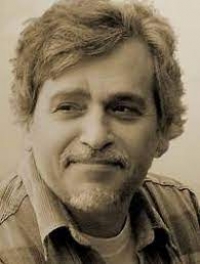
These two mysterious words are met in numerous responses and publications about the composer Mikhail Shukh. In the article лLooking for Harmony╗ from the Russian magazine лMusical Academy╗ (1996-12) such words are addressed to his creativity: лProperty and purpose of all kinds of meditation are found in an eminence above ordinary, in aspiration to Unity, Integrity, Harmony. Meditative music approaches to achievement of these purposes in any time, any culture, epoch, style, individual author's environment╗.Mikhail Shukh constantly deeps into itself, tries to find internal freedom, to overtake the secrets of the device of the world, order of the Beauty and Harmony. It already became his lifestyle, the main creative credo. The formation of creative individuality of Mikhail Shukh occurred in 1970s during the studding in the Kharkov Institute of Arts on the composition with the professors Dmitriy Klebanov, Vladimir Zolotukhin. That was the time of the total communist ideology, the priority of it above the creative person. It was the situation, when the rating in a subject лhistorical materialism╗ characterised the person; when Komsomol forbade to the young men to have long head-dress, and music had to be written under the standard.
Brian Perez

Brian Perez is a saxophone and woodwind performer, educator, and composer residing in Houston Texas. He performs regularly with the Conrad Johnson Jazz Orchestra and the Houston Jazz Orchestra as well as with his own projects. He also serves as Director of the Jazz Ensembles, and woodwinds at Texas Southern University.
R. Kelly

Robert Sylvester Kelly (born January 8, 1967) better known by his stage name R. Kelly, is an American R&B and pop singer-songwriter, occasional rapper and record producer. Debuting in 1992 with the group Public Announcement, Kelly left the group within a year for a successful solo career starting with the album, 12 Play (1994). Since then, Kelly has been known for a collection of hit singles including "Bump N' Grind", "I Believe I Can Fly", "Ignition" and the urban hip-hopera "Trapped in the Closet".
Michael Buble

Michael Steven Bublé (born 9 September 1975) is a Canadian big band singer. He won several awards, including a Grammy and multiple Juno Awards. While achieving modest chart success in the United States, his 2003 self-titled album has reached the top ten in Lebanon, the UK and his home country. However, he did find commercial success in the U.S. with his 2005 album It's Time. He has sold over 18 million albums. Michael has also appeared on the TV series Rove four times.
The album Michael Bublé was released by Warner Bros. Records just before Valentine's Day in 2003. The album was actually first released by the Warner company in South Africa, where the album went into the Top 5 and was certified Gold. Soon after that, it entered the Canadian album charts. As success in the USA was marginal at best, Bublé started visiting countries all over the world, with the album being successful in places like the Philippines and Singapore. He then moved on to placed like Italy and eventually had chart success in the UK, U.S., Australia and elsewhere soon followed with the album going Platinum and reaching the top ten of the album charts in the UK and Canada and going all the way to #1 in Australia. The album has reached the top 50 of the Billboard 200 album charts in the U.S. His version of George Michael's "Kissing a Fool" was released as a single from the album and reached the top 30 of the Billboard Hot Adult Contemporary Tracks chart. "How Can You Mend a Broken Heart?" reached the top 30 of the Billboard Adult Contemporary chart as well. His third single "Sway" also reached the top 30 of the Adult Contemporary chart, while a Junkie XL remix of the song reached the top 20 in Australia in May 2004.
Bublé's second studio album, It's Time, debuted as a hugely successful performance. The album reached number 7 on the Billboard 200 album chart and number 2 on the ARIA Album Charts in Australia. It's Time also debuted at number 4 on the UK Album Charts. The album features covers of Beatles and Ray Charles songs, and the hit single "Home".
The album Michael Bublé was released by Warner Bros. Records just before Valentine's Day in 2003. The album was actually first released by the Warner company in South Africa, where the album went into the Top 5 and was certified Gold. Soon after that, it entered the Canadian album charts. As success in the USA was marginal at best, Bublé started visiting countries all over the world, with the album being successful in places like the Philippines and Singapore. He then moved on to placed like Italy and eventually had chart success in the UK, U.S., Australia and elsewhere soon followed with the album going Platinum and reaching the top ten of the album charts in the UK and Canada and going all the way to #1 in Australia. The album has reached the top 50 of the Billboard 200 album charts in the U.S. His version of George Michael's "Kissing a Fool" was released as a single from the album and reached the top 30 of the Billboard Hot Adult Contemporary Tracks chart. "How Can You Mend a Broken Heart?" reached the top 30 of the Billboard Adult Contemporary chart as well. His third single "Sway" also reached the top 30 of the Adult Contemporary chart, while a Junkie XL remix of the song reached the top 20 in Australia in May 2004.
Bublé's second studio album, It's Time, debuted as a hugely successful performance. The album reached number 7 on the Billboard 200 album chart and number 2 on the ARIA Album Charts in Australia. It's Time also debuted at number 4 on the UK Album Charts. The album features covers of Beatles and Ray Charles songs, and the hit single "Home".
Celine Dion

Céline Marie Claudette Dion (born March 30, 1968 in Charlemagne, Quebec) is a Canadian singer, and occasional songwriter and actress.
Dion had first gained international recognition in the 1980s by winning both the 1982 Yamaha World Popular Song Festival and the 1988 Eurovision Song Contest.
Dion's music has been influenced by genres ranging from rock and R&B to gospel and classical, and while her releases have often received mixed critical reception, she is renowned for her technically skilled and powerful vocals.
Dion had first gained international recognition in the 1980s by winning both the 1982 Yamaha World Popular Song Festival and the 1988 Eurovision Song Contest.
Dion's music has been influenced by genres ranging from rock and R&B to gospel and classical, and while her releases have often received mixed critical reception, she is renowned for her technically skilled and powerful vocals.
Chopin

Frédéric Chopin (1 March 1810 – 17 October 1849) was a Polish composer and virtuoso pianist of the Romantic period. He is widely regarded as the greatest Polish composer, and ranks as one of music's greatest tone poets.
He was born in the village of Żelazowa Wola, in the Duchy of Warsaw, to a Polish mother and French-expatriate father, and in his early life was regarded as a child-prodigy pianist. In November 1830, at the age of 20, Chopin went abroad; following the suppression of the Polish November Uprising of 1830–31, he became one of many expatriates of the Polish "Great Emigration."
In Paris, he made a comfortable living as a composer and piano teacher, while giving few public performances. A Polish patriot,
Chopin's extant compositions were written primarily for the piano as a solo instrument. Though technically demanding, Chopin's style emphasizes nuance and expressive depth rather than virtuosity. Chopin invented musical forms such as the ballade and was responsible for major innovations in forms such as the piano sonata, waltz, nocturne, étude, impromptu and prelude. His works are mainstays of Romanticism in 19th-century classical music.
He was born in the village of Żelazowa Wola, in the Duchy of Warsaw, to a Polish mother and French-expatriate father, and in his early life was regarded as a child-prodigy pianist. In November 1830, at the age of 20, Chopin went abroad; following the suppression of the Polish November Uprising of 1830–31, he became one of many expatriates of the Polish "Great Emigration."
In Paris, he made a comfortable living as a composer and piano teacher, while giving few public performances. A Polish patriot,
Chopin's extant compositions were written primarily for the piano as a solo instrument. Though technically demanding, Chopin's style emphasizes nuance and expressive depth rather than virtuosity. Chopin invented musical forms such as the ballade and was responsible for major innovations in forms such as the piano sonata, waltz, nocturne, étude, impromptu and prelude. His works are mainstays of Romanticism in 19th-century classical music.
Bob McQuillan
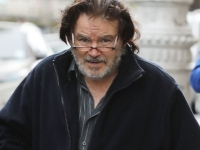
Bob "Mr. Mac" McQuillen was a teacher, musician, and prolific composer of contra dance tunes. He was a recipient of a 2002 National Heritage Fellowship awarded by the National Endowment for the Arts, which is the United States government's highest honor in the folk and traditional arts.
Mark Hayes
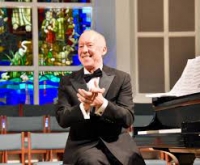
Mark Hayes is an American composer and arranger. His predominant output is of choral music in the Christian sacred music and gospel music genres.
Dukas
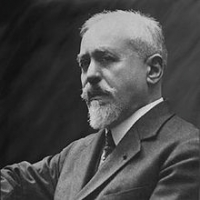
Paul Abraham Dukas (1 October 1865 – 17 May 1935) was a French composer, critic, scholar and teacher. A studious man, of retiring personality, he was intensely self-critical, and he abandoned and destroyed many of his compositions. His best known work is the orchestral piece The Sorcerer's Apprentice (L'apprenti sorcier), the fame of which has eclipsed that of his other surviving works. Among these are an opera Ariane et Barbe-bleue, a symphony, two substantial works for solo piano, and a ballet, La Péri.
At a time when French musicians were divided into conservative and progressive factions, Dukas adhered to neither but retained the admiration of both. His compositions were influenced by composers including Beethoven, Berlioz, Franck, d'Indy and Debussy.
In tandem with his composing career, Dukas worked as a music critic, contributing regular reviews to at least five French journals. Later in his life he was appointed professor of composition at the Conservatoire de Paris and the École Normale de Musique; his pupils included Maurice Duruflé, Olivier Messiaen, Manuel Ponce, and Joaquín Rodrigo.
At a time when French musicians were divided into conservative and progressive factions, Dukas adhered to neither but retained the admiration of both. His compositions were influenced by composers including Beethoven, Berlioz, Franck, d'Indy and Debussy.
In tandem with his composing career, Dukas worked as a music critic, contributing regular reviews to at least five French journals. Later in his life he was appointed professor of composition at the Conservatoire de Paris and the École Normale de Musique; his pupils included Maurice Duruflé, Olivier Messiaen, Manuel Ponce, and Joaquín Rodrigo.
Hans Zimmer

Hans Florian Zimmer (born September 12, 1957) is a German film score composer and music producer. He has composed music for over 100 films, including Hollywood blockbusters such as the Pirates of the Caribbean series, Gladiator, The Lion King, The Da Vinci Code and The Dark Knight.
Zimmer spent the early part of his career in the United Kingdom before moving to the United States. He is the head of the film music division at DreamWorks studios, and works with other composers through the company which he founded, Remote Control Productions. His work is notable for integrating electronic music sounds with traditional orchestral arrangements.
Zimmer spent the early part of his career in the United Kingdom before moving to the United States. He is the head of the film music division at DreamWorks studios, and works with other composers through the company which he founded, Remote Control Productions. His work is notable for integrating electronic music sounds with traditional orchestral arrangements.
Debussy

Achille-Claude Debussy (August 22, 1862 – March 25, 1918) was a French composer. Along with Maurice Ravel, he is considered one of the most prominent figures working within the field of Impressionist music, though he himself intensely disliked the term when applied to his compositions. Debussy was not only among the most important of all French composers but also was a central figure in all European music at the turn of the twentieth century.
Debussy's music virtually defines the transition from late-Romantic music to twentieth century modernist music. In French literary circles, the style of this period was known as Symbolism, a movement that directly inspired Debussy both as a composer and as an active cultural participant.
Debussy's music virtually defines the transition from late-Romantic music to twentieth century modernist music. In French literary circles, the style of this period was known as Symbolism, a movement that directly inspired Debussy both as a composer and as an active cultural participant.
Sonata Arctica
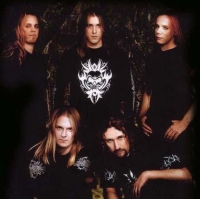
Sonata Arctica is a Finnish power metal band from the town of Kemi, originally assembled in 1996. Their later works (most notably Unia) contain some elements typical of progressive metal.
Members:
Tony Kakko − Vocals (all studio vocals) & keyboards on Ecliptica and Winterheart's Guild
Elias Viljanen − Guitar, live backing vocals
Marko Paasikoski − Bass guitar, live backing vocals (formerly guitar)
Tommy Portimo − Drums
Henrik Klingenberg − Keyboards, live backing vocals
Members:
Tony Kakko − Vocals (all studio vocals) & keyboards on Ecliptica and Winterheart's Guild
Elias Viljanen − Guitar, live backing vocals
Marko Paasikoski − Bass guitar, live backing vocals (formerly guitar)
Tommy Portimo − Drums
Henrik Klingenberg − Keyboards, live backing vocals
Vangelis
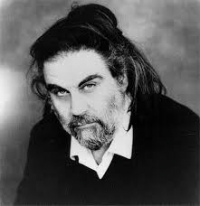
Evangelos Odysseas Papathanassiou (Greek: Ευάγγελος Οδυσσέας Παπαθανασίου ; born 29 March 1943), known professionally as Vangelis (Greek: Βαγγέλης ; English pronunciation: /væŋˈɡɛlᵻs/), is a Greek composer of electronic, progressive, ambient, jazz, pop rock, and orchestral music. He is best known for his Academy Award–winning score for the film Chariots of Fire, composing scores for the films Antarctica, Blade Runner, Missing, 1492: Conquest of Paradise, and Alexander, and the use of his music in the PBS documentary Cosmos: A Personal Voyage by Carl Sagan.
After having taking piano lessons from renowned Greek composer Aristotelis Koundouroff, Vangelis began his professional musical career working with several popular bands of the 1960s such as The Forminx and Aphrodite's Child, with the latter's album 666 going on to be recognized as a psychedelic classic. Throughout the 1970s, Vangelis composed music scores for several animal documentaries, including L'Apocalypse Des Animaux, La Fête sauvage and Opéra sauvage; the success of these scores brought him into the film scoring mainstream. In the early 1980s, Vangelis formed a musical partnership with Jon Anderson, the lead singer of progressive rock band Yes, and the duo went on to release several albums together as Jon & Vangelis.
In 1981, he composed the score for the Oscar-winning film Chariots of Fire, for which he won an Academy Award for Best Original Music Score. The soundtrack's single, the film's "Titles" theme, also reached the top of the American Billboard Hot 100 chart and was used as the background music at the London 2012 Olympics winners' medal presentation ceremonies.
Having had a career in music spanning over 50 years and having composed and performed more than 52 albums, Vangelis is one of the most important proponents of electronic music.
After having taking piano lessons from renowned Greek composer Aristotelis Koundouroff, Vangelis began his professional musical career working with several popular bands of the 1960s such as The Forminx and Aphrodite's Child, with the latter's album 666 going on to be recognized as a psychedelic classic. Throughout the 1970s, Vangelis composed music scores for several animal documentaries, including L'Apocalypse Des Animaux, La Fête sauvage and Opéra sauvage; the success of these scores brought him into the film scoring mainstream. In the early 1980s, Vangelis formed a musical partnership with Jon Anderson, the lead singer of progressive rock band Yes, and the duo went on to release several albums together as Jon & Vangelis.
In 1981, he composed the score for the Oscar-winning film Chariots of Fire, for which he won an Academy Award for Best Original Music Score. The soundtrack's single, the film's "Titles" theme, also reached the top of the American Billboard Hot 100 chart and was used as the background music at the London 2012 Olympics winners' medal presentation ceremonies.
Having had a career in music spanning over 50 years and having composed and performed more than 52 albums, Vangelis is one of the most important proponents of electronic music.
Manuel de Falla
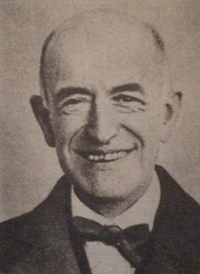
Manuel de Falla y Matheu (November 23, 1876 – November 14, 1946) was a Spanish Andalusian composer of classical music. With Isaac Albéniz and Enrique Granados he is one of Spain's most important musicians of the first half of the 20th century.
Burt Bacharach
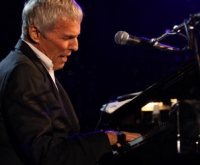
Burt Bacharach (born May 12, 1928) is an American pianist and composer. He is best known for his many pop hits from the early 1960s through the 1980s, with lyrics written by Hal David, many of which were produced for and recorded by Dionne Warwick.
As of 2006, Bacharach had written a total of 70 Top 40 hits in the US, and 52 Top 40 hits in the UK. According to britishhitsongwriters.com he is the eighteenth most successful songwriter in U.K. chart history based on weeks that his compositions have spent on the chart.
As of 2006, Bacharach had written a total of 70 Top 40 hits in the US, and 52 Top 40 hits in the UK. According to britishhitsongwriters.com he is the eighteenth most successful songwriter in U.K. chart history based on weeks that his compositions have spent on the chart.
Martin Smith

Martin James Smith is an English vocalist, guitarist, songwriter, and producer. Smith was the front man of the Christian rock and worship band Delirious?. When Delirious? disbanded in 2009, Smith became a solo artist.
Victor Young
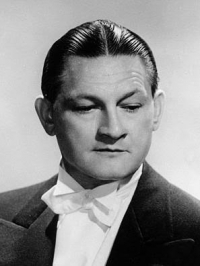
Victor Young was an American composer, arranger, violinist and conductor. Born: August 8, 1900, Chicago, Illinois, United States Died: November 10, 1956, Palm Springs, California, United States Spouse: Rita Kinel (m. 1922–1956)
Albums: Themes and Songs from The Quiet Man,
Albums: Themes and Songs from The Quiet Man,
Clean Bandit

Clean Bandit is a British electronic music band formed in Cambridge in 2008. Band members are Grace Chatto, Jack Patterson and Luke Patterson. Their 2010 single "Mozart's House" peaked at number 17 on the UK Singles Chart. In January 2014, their duet with Jess Glynne, "Rather Be", topped the UK charts. "Rather Be", a classical and dance music song, also peaked at number 10 on the US Billboard Hot 100 chart.
Ruggero Leoncavallo
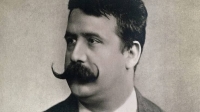
Ruggero Leoncavallo is an opera and operetta composer of the Italian modern era verismo.
Pierre Attaignant
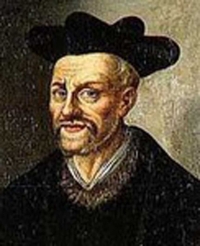
Pierre Attaingnant (c. 1494 – late 1551 or 1552) was a French music printer, active in Paris.
Attaingnant's major contribution to music printing consists in his popularizing the single-impression method for music printing, which he first employed in his 1528 publication Chansons nouvelles en musique à quatre parties. In this system, the individual notes were printed directly onto segments of staff, and so the notes, staff lines, and text could all be printed with one send through the printing press. The main disadvantage of this method was the alignment of the staff lines, which often had a “bumpy” look - some being slightly higher or slightly disjointed from others. Nevertheless, this method became standard music printing practice across Europe in the 16th and 17th centuries.
Apart from his 36 collections of chansons, he also published books with pieces in lute or keyboard tablature, as well as Masses and motets.
Attaingnant's major contribution to music printing consists in his popularizing the single-impression method for music printing, which he first employed in his 1528 publication Chansons nouvelles en musique à quatre parties. In this system, the individual notes were printed directly onto segments of staff, and so the notes, staff lines, and text could all be printed with one send through the printing press. The main disadvantage of this method was the alignment of the staff lines, which often had a “bumpy” look - some being slightly higher or slightly disjointed from others. Nevertheless, this method became standard music printing practice across Europe in the 16th and 17th centuries.
Apart from his 36 collections of chansons, he also published books with pieces in lute or keyboard tablature, as well as Masses and motets.
Backstreet Boys

Backstreet Boys are a Grammy-nominated American pop group. They were the first group launched by fallen boy band mogul Lou Pearlman. They have had 13 Top 40 hits on the Billboard Hot 100 and have sold approximately 100 million albums, making them the best selling boy band of all time; they were number 1 in concert and album sales from 1997-2005 (when they earned $533.1 million). Two of their albums - Millennium (at #36) and Backstreet Boys (at #40) - are among the top 40 most popular albums of all-time.
After returning to the music scene in 2005, their sound changed dramatically, incorporating only live instruments (some of which they play themselves) and a more guitar and piano driven pop rock sound. The four-member group consists of Nick Carter, Howie Dorough, Brian Littrell and A. J. McLean. Original member Kevin Richardson left the group on June 23, 2006 to begin a family, but the four-piece refused to rule out a possible return for the singer.
After returning to the music scene in 2005, their sound changed dramatically, incorporating only live instruments (some of which they play themselves) and a more guitar and piano driven pop rock sound. The four-member group consists of Nick Carter, Howie Dorough, Brian Littrell and A. J. McLean. Original member Kevin Richardson left the group on June 23, 2006 to begin a family, but the four-piece refused to rule out a possible return for the singer.
Erroll Garner
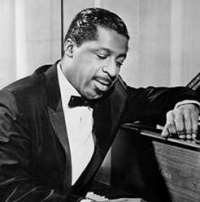
Erroll Louis Garner (June 15, 1921 – January 2, 1977) was an American jazz pianist and composer whose distinctive and melodic style brought him both popular acclaim and the admiration of peers. Of note, Garner was never able to read or write sheet music.
What makes Garner's playing easy to recognize is his trademark introductions, which seem to make no sense until breaking dramatically into his exposition of the tune he will play, and the guitar strumming sound of his left hand, playing crotchet accompaniment to his rich sounding right hand. He places his chords and octaves on syncopated beats that swing very hard and can be used to build excellent tension, such as between phrases. The approach also suggests he was influenced by the iconic rhythm guitar work of Count Basie's long time guitarist, Freddie Green. But discerning listeners could find that while his even four left hand was a fixture, it was far from being the only rhythmic approach he took to playing.
What makes Garner's playing easy to recognize is his trademark introductions, which seem to make no sense until breaking dramatically into his exposition of the tune he will play, and the guitar strumming sound of his left hand, playing crotchet accompaniment to his rich sounding right hand. He places his chords and octaves on syncopated beats that swing very hard and can be used to build excellent tension, such as between phrases. The approach also suggests he was influenced by the iconic rhythm guitar work of Count Basie's long time guitarist, Freddie Green. But discerning listeners could find that while his even four left hand was a fixture, it was far from being the only rhythmic approach he took to playing.
Bruno Coulais
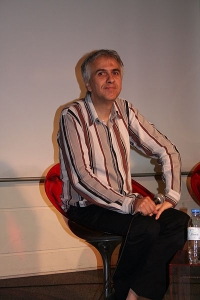
Bruno Coulais (born 13 January 1954) is a French composer, most widely known for his music on film soundtracks. Coulais was born in Paris; his father is from Vendée and his mother is an Iraqi Jew. Coulais recently performed the score for the stop-motion animated film, Coraline, released February 6, 2009.
Stanley Myers
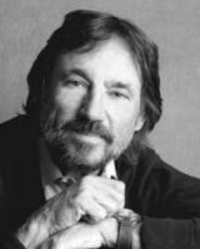
Stanley Myers (6 October 1930 – 9 November 1993), was a prolific British film composer who scored over sixty films. Born in Birmingham, as a teenager Myers went to King Edward's School in Edgbaston, a suburb of Birmingham. He is also known for composers music for cult films House of Whipcord, Frightmare and House of Mortal Sin for cult filmmaker Peter Walker.
He is best known for Cavatina (1970), an evocative guitar piece that served as the signature theme for Michael Cimino's 1978 film The Deer Hunter, and for which Myers won the Ivor Novello Award. A somewhat different version of this work, performed by John Williams, had appeared in The Walking Stick. And yet another version had lyrics added. Cleo Laine and Iris Williams, in separate recordings as He Was Beautiful, helped to make Cavatina become even more popular.
He is best known for Cavatina (1970), an evocative guitar piece that served as the signature theme for Michael Cimino's 1978 film The Deer Hunter, and for which Myers won the Ivor Novello Award. A somewhat different version of this work, performed by John Williams, had appeared in The Walking Stick. And yet another version had lyrics added. Cleo Laine and Iris Williams, in separate recordings as He Was Beautiful, helped to make Cavatina become even more popular.
Jaroslav Jezek
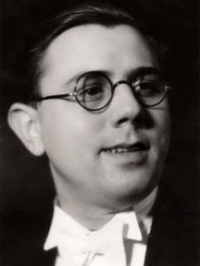
Jaroslav Jezek (September 25, 1906 - January 1, 1942) was a Czech composer, pianist and conductor, author of jazz, classical, incidental and film music.Ježek was born in the Prague quarter of Žižkov to the family of a tailor. He was almost blind from a young age. He studied composition at the Prague Conservatory as a pupil of Karel Boleslav Jirák (1924–1927), at the master school of composition with Josef Suk (1927–1930)
Korn

Korn (stylized as KoЯn) is an American nu metal band from Bakersfield, California, formed in 1993. The band is notable for pioneering the nu metal genre and bringing it into the mainstream.Originally formed in 1993 by three members of the band L.A.P.D., Korn's current lineup features founding members James "Munky" Shaffer (rhythm guitar), Reginald "Fieldy" Arvizu (bass), Brian "Head" Welch (lead guitar, backing vocals), and Jonathan Davis (lead vocals, bagpipes), with the addition of Ray Luzier (drums) in 2007, replacing the band's first drummer, David Silveria.
3 Doors Down

3 Doors Down is an American rock band formed in 1994 in Escatawpa, Mississippi by Brad Arnold (vocals and drums), Matt Roberts (guitar) and Todd Harrell (bass). The band signed to Universal Records after the success of their song "Kryptonite". The band has since sold well over 15 million albums worldwide since their debut album, The Better Life, which was released in 2000. They also perform more than 300 concerts a year and have shared the stage with other artists such as Tantric, Lynyrd Skynyrd, Staind, Nickelback, Alter Bridge, Breaking Benjamin, Econoline Crush, Hinder, Seether, Shinedown, Finger Eleven, and Daughtry. Hit song It's Not My Time is featured in the video game NHL 09.
J. S. Bach
Johann Sebastian Bach (21 March 1685, O.S.31 March 1685, N.S. – 28 July 1750, N.S.) was a German composer, organist, harpsichordist, violist, and violinist whose sacred and secular works for choir, orchestra, and solo instruments drew together the strands of the Baroque period and brought it to its ultimate maturity. Although he did not introduce new forms, he enriched the prevailing German style with a robust contrapuntal technique, an unrivalled control of harmonic and motivic organisation, and the adaptation of rhythms, forms and textures from abroad, particularly from Italy and France.
Revered for their intellectual depth, technical command and artistic beauty, Bach's works include the Brandenburg Concertos, the Goldberg Variations, the Partitas, The Well-Tempered Clavier, the Mass in B minor, the St Matthew Passion, the St John Passion, the Magnificat, A Musical Offering, The Art of Fugue, the English and French Suites, the Sonatas and Partitas for solo violin, the Cello Suites, more than 200 surviving cantatas, and a similar number of organ works, including the famous Toccata and Fugue in D minor and Passacaglia and Fugue in C minor, as well as the Great Eighteen Chorale Preludes and Organ Mass.
Bach's abilities as an organist were highly respected throughout Europe during his lifetime, although he was not widely recognised as a great composer until a revival of interest and performances of his music in the first half of the 19th century. He is now generally regarded as one of the main composers of the Baroque style, and as one of the greatest composers of all time.
Revered for their intellectual depth, technical command and artistic beauty, Bach's works include the Brandenburg Concertos, the Goldberg Variations, the Partitas, The Well-Tempered Clavier, the Mass in B minor, the St Matthew Passion, the St John Passion, the Magnificat, A Musical Offering, The Art of Fugue, the English and French Suites, the Sonatas and Partitas for solo violin, the Cello Suites, more than 200 surviving cantatas, and a similar number of organ works, including the famous Toccata and Fugue in D minor and Passacaglia and Fugue in C minor, as well as the Great Eighteen Chorale Preludes and Organ Mass.
Bach's abilities as an organist were highly respected throughout Europe during his lifetime, although he was not widely recognised as a great composer until a revival of interest and performances of his music in the first half of the 19th century. He is now generally regarded as one of the main composers of the Baroque style, and as one of the greatest composers of all time.
Vivaldi

Antonio Lucio Vivaldi (March 4, 1678 â July 28, 1741), nicknamed il Prete Rosso ("The Red Priest"), was a Venetian priest and Baroque music composer, as well as a famous virtuoso violinist; he was born and raised in the Republic of Venice. The Four Seasons, a series of four violin concerti, is his best-known work and a highly popular Baroque piece.
Many of Vivaldi's compositions reflect a flamboyant, almost playful, exuberance. Most of Vivaldi's repertoire was rediscovered only in the first half of the 20th century in Turin and Genoa and was published in the second half. Vivaldi's music is innovative, breaking a consolidated tradition in schemes; he gave brightness to the formal and the rhythmic structure of the concerto, repeatedly looking for harmonic contrasts and innovative melodies and themes. Moreover, Vivaldi was able to compose nonacademic music, particularly meant to be appreciated by the wide public and not only by an intellectual minority. The joyful appearance of his music reveals in this regard a transmissible joy of composing; these are among the causes of the vast popularity of his music. This popularity soon made him famous in other countries such as France which was, at the time, very independent concerning its musical taste.
Vivaldi is considered one of the composers who brought Baroque music (with its typical contrast among heavy sonorities) to evolve into a classical style. Johann Sebastian Bach was deeply influenced by Vivaldi's concertos and arias (recalled in his Johannes Passion, Matthäuspassion, and cantatas). Bach transcribed a number of Vivaldi's concerti for solo keyboard, along with a number for orchestra, including the famous Concerto for Four Violins and Violoncello, Strings and Continuo (RV 580).
Many of Vivaldi's compositions reflect a flamboyant, almost playful, exuberance. Most of Vivaldi's repertoire was rediscovered only in the first half of the 20th century in Turin and Genoa and was published in the second half. Vivaldi's music is innovative, breaking a consolidated tradition in schemes; he gave brightness to the formal and the rhythmic structure of the concerto, repeatedly looking for harmonic contrasts and innovative melodies and themes. Moreover, Vivaldi was able to compose nonacademic music, particularly meant to be appreciated by the wide public and not only by an intellectual minority. The joyful appearance of his music reveals in this regard a transmissible joy of composing; these are among the causes of the vast popularity of his music. This popularity soon made him famous in other countries such as France which was, at the time, very independent concerning its musical taste.
Vivaldi is considered one of the composers who brought Baroque music (with its typical contrast among heavy sonorities) to evolve into a classical style. Johann Sebastian Bach was deeply influenced by Vivaldi's concertos and arias (recalled in his Johannes Passion, Matthäuspassion, and cantatas). Bach transcribed a number of Vivaldi's concerti for solo keyboard, along with a number for orchestra, including the famous Concerto for Four Violins and Violoncello, Strings and Continuo (RV 580).
 Sheet Music Mobile is a site for those who wants to access popular sheet music easily,
letting them download the sheet music for free for trial purposes.
It's completely free to download and try the listed sheet music, but you have to delete the files after 24 hours of trial.
Don't forget, if you like the piece of music you have just learned playing,
treat the artist with respect, and go buy the original sheet music.
Sheet Music Mobile is a site for those who wants to access popular sheet music easily,
letting them download the sheet music for free for trial purposes.
It's completely free to download and try the listed sheet music, but you have to delete the files after 24 hours of trial.
Don't forget, if you like the piece of music you have just learned playing,
treat the artist with respect, and go buy the original sheet music.